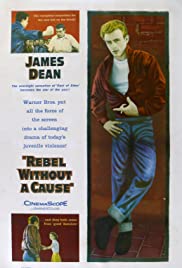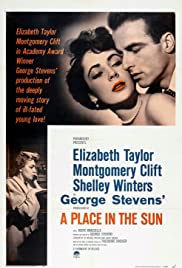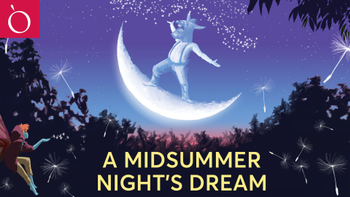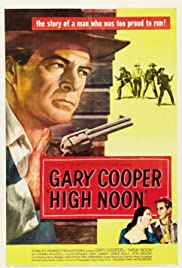Title: Rebel Without A Cause
Rating: 4 Stars
Well, I’ve watched Marlon Brando’s signature role in Streetcar Named Desire and I’ve watched Montgomery Clift in A Place in the Sun, so I decided to finish the trifecta of 1950s heart throb uncompromising misunderstood method actors by watching James Dean in Rebel Without a Cause.
First, a word about the cast. Sure, you have James Dean (playing Jim), Natalie Wood (playing Judy), and Sal Mineo (playing Plato). How about Mr Magoo (Jim Backus) as Jim’s father? How about Paul Drake (William Hopper) from the OG Perry Mason (which is especially weird since I just saw Raymond Burr in A Place in the Sun) playing Judy’s father? How about The Chief from Get Smart playing an understanding policeman? Best of all, how about a very young Dennis Hopper playing a teenage gang member named, I kid you not, Goon?
My ignorance of this film is best illuminated by the fact that I had no idea that Tommy Wiseau 100% stole his “You’re tearing me apart!” line from James Dean emoting teenage angst at his parents.
The plot starts with our three troubled teenagers, for different reasons, all landing at the police station. Jim is drunk. Judy has violated curfew. Plato, much more disturbingly, has killed some puppies.
It quickly turns out that the three of them have severe parental issues. Jim’s mom is domineering while his father, who Jim looks up to and is desperately seeking guidance from, is weak (at one point in the film is actually shown wearing an apron, which I’m guessing in 1950s argot pretty much puts him in lipstick and a wig).
Judy wants to be close again to her father, but apparently her father has decided, since she is now 16 years old, that she no longer deserves any attention from him. In fact, he angrily slaps her on the cheek when she gives him a little peck of a kiss. Is there some hidden child abuse trauma here lying just below the surface?
Plato’s parents are just not there. He’s being raised by live in help. They send him money to sustain himself. He tells different stories about why they’re not around. Plato ends up latching onto Jim and Judy as some parent figure equivalents.
Jim has been in trouble before. The solution that his parents have come up with is to change towns whenever he gets into too much trouble. I have no idea what his father does that allows them to just immediately uproot periodically and go off to parts unknown.
Jim’s first day at school goes poorly. There’s a gang of young toughs that Judy hangs out with. They immediately start harassing Jim. Jim gets into a knife fight with Buzz, the leader.
Buzz challenges Jim to a Chicken Run. This is a race in which they each ride a beat up car as close to a cliff ridge as they can get before throwing themselves out of the car before it plummets over the edge. Jim gets out, but Buzz gets caught on the door handle and plunges to his death with the car. Anyone remember the tractor scene from Footloose?
Judy, who was dating Buzz, seems to get over Buzz’s death pretty quickly. Jim, Judy, and Plato all go to a deserted mansion. Buzz’s gang, out to take vengeance on Jim, show up at the mansion. Plato shoots and wounds one of the gang. He runs away with the police in hot pursuit. Jim and Judy find Plato and convince him to turn himself in. When Plato comes out to surrender, the police shoot him down.
Jim then introduces Judy to his parents. Again, I’m not kidding. That’s how it ends.
First things first. You can certainly see how this film set the template for all future teenage angst films and how James Dean is the template for all future tortured, sensitive, misunderstood teenagers.
I’ve written about the Hays Code before, the strictures that it places on the film, and how directors get around them. In this film, the strongest sexual chemistry is between Jim and Plato. Mineo was told to act towards Dean just like Wood does. Hence, Plato’s feelings towards Jim are palpable.
James Dean came into this film on the heels of East of Eden. He’s already a star. In fact, he’s such a huge star at this point that the studio heads agreed to film it in color. The director, Nicholas Ray, was so impressed with James Dean that he allowed him to improvise significant scenes in the film, much to more traditional actors’ (like Jim Backus) dismay. Here you see method acting in all of its glory and excess.
Nicholas Ray was apparently a piece of work. He had an affair with Natalie Wood during the filming. He was 43 and she was 16. There were rumors that he had a similar relationship with Sal Mineo (aged 15). Dennis Hopper, as a reminder, played a character named Goon. It was apparently a larger role but, when Ray found out that Hopper was also having an affair with Wood, Ray cut most of Hopper’s lines.
It’s interesting to contemplate James Dean’s career. He did some television work and a couple of uncredited film roles, but his entire body of work essentially consists of three films: East of Eden, Rebel Without a Cause, and Giant. He arrived in Los Angeles in April 1954 and he died in a car crash in September 1955. It was such a short time to establish a legend.
The film is good and it surely set patterns that have been followed by many subsequent films. Just like A Place in the Sun, Rebel Without a Cause was on the earlier AFI top films list and was dropped off the revised list. Just like A Place in the Sun, I concur with that decision. It’s an important film but it wouldn’t be on my top 100 films list.










